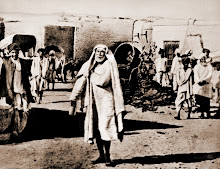Schedule Y and CROs
Schedule Y deals with regulations relating to clinical trial requirements for import, manufacture and obtaining marketing approval for a new drug in India. The procedure for applying for marketing approval depends on the status of the new drug, which can be broadly classified into three categories viz. new drug substances discovered which are already approved/ marketed in other countries, new drug substances discovered which are not approved/ marketed in other countries and new drug substances discovered in India.
In case of the new drug substances discovered which are already approved/ marketed in other countries, it is sufficient if confirmatory trials (phase III) are conducted to obtain sufficient data about the efficacy and safety of the drug in a larger number of patients (minimum 100 in 3-4 centres) generally in comparison with a standard drug or a placebo to confirm efficacy and safety claims made in the product monograph.
For new drug substances discovered which are not approved/ marketed in other countries, permission for clinical trials are given with a phase lag in case new drug substances are not approved/ marketed in other countries.
For eg: phase I of a new drug substance is allowed only if the drug has completed phase I and moved to phase II in other countries; similarly phase II is allowed in India only after completion of phase II in other countries and phase III has commenced.
It is very clear that phase I trials cannot be initiated in India for new drug substances discovered in other countries unless phase I data from other countries is available.
In case of new drug substances discovered in India, clinical trials have to be carried out as human / clinical pharmacology trials (phase I). The phase I trials are carried out on healthy human volunteers (minimum 2 at each dose level) to determine maximum tolerated dose in humans, pharmacodynamic effects, adverse reactions, pharmacokinetic behaviours etc.
Under the exploratory trials or phase II trials are carried out on limited number of patients (normally 10 -12 at each dose level) to determine therapeutic uses, effective dose range and further evaluation of safety and pharmacokinetics.
Confirmatory trials or phase III trials are conducted to obtain sufficient data about the efficacy and safety of the drug in a larger number of patients (minimum 100 in 3-4 centres) generally in comparison with a standard drug or a placebo to confirm efficacy and safety claims made in the product monograph. If the new drug substance is not marketed in any other country Phase III trials should be conducted on a minimum of 500 patients spread across 10 - 15 centres.
It is to be noted that permission for the next phase will be given only after satisfactory completion of the previous phase. For e.g. permission for phase II trials will be given only after phase I trial is completed satisfactorily and data is submitted and reviewed by the regulatory authorities.
Implications of the revised Schedule Y
From a plain reading of the revised Schedule Y of the Drugs and Cosmetics Rules, it is clear that in cases of new drug substances discovered which are already approved and marketed in other countries where confirmatory trials are required and new drug substances discovered in India where all the stages of clinical trials are to be conducted, the regulations look clear and unambiguous.
However, in case of new drug substances discovered which are not approved or marketed in other countries where new drug substances are not approved or marketed in other countries, it puts back India by a step as compared to other countries due to Phase lag that need to be adhered to.
It is heartening to note that the revised Schedule Y will address the issue of phase lag in case of phase II and concurrent trials will be allowed. This is a welcome move since it is a well established fact that patient enrollment rates are high in India as compared to countries like USA and EU which will reduce the time to market. Acceptance of data from phase II trials conducted in India by other countries will pave way for all the drug companies to look at India for all their phase II requirements.
From a broader perspective, drugs will be available for patients in India earlier than what it is today. clinical research organizations (CROs) will be in a position to increase its offerings which is now confined to phase III trials and bioequivalence/ bioavailability studies. Phase II trials will be a great value addition and a major boost to the future of CROs. Needless to say that it will create more jobs, more foreign exchange and increased health for the society in general.
Status quo in case of phase I trials should be viewed from the regulators point. The clinical trial segment is yet to mature to desired levels and abundant caution needs to be exercised on the implications of allowing first in man studies. On the other hand it may still offer indirect advantages like multinational pharmaceutical companies trying to set up R & D units in India or looking at tie-ups for various new drugs being developed by Indian companies.
The relaxation on restrictions to export biological samples and revisiting regulatory procedures are steps in the right direction. This will boost confidence of overseas companies and more investments will follow. India will be the destination for pharmaceutical R & D with its huge knowledge base, alignment of regulatory provisions to global standards etc.
- (The author is MD, Lotus Labs Pvt. Ltd.)
Saturday, October 4, 2008
Subscribe to:
Post Comments (Atom)

No comments:
Post a Comment